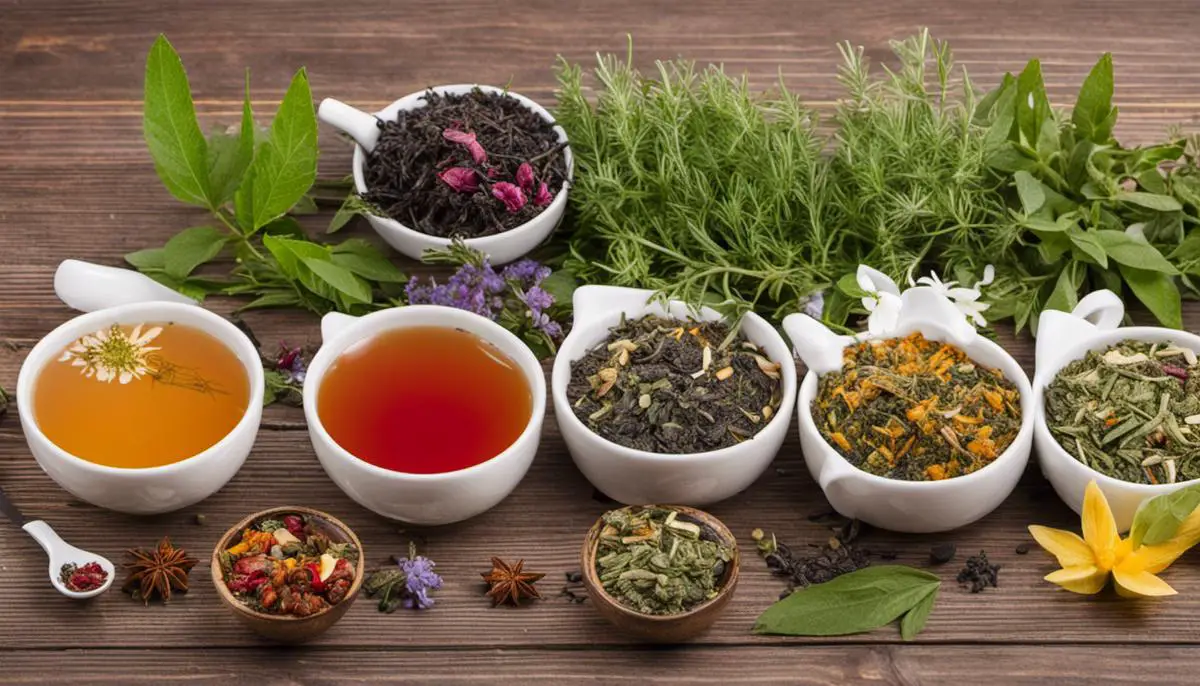Abdominal bloating, a common and often distressing symptom, can significantly impact the quality of day-to-day life. From feeling uncomfortable or visibly bloated to experiencing serious constraints in performing daily tasks, bloating is far more than a mere inconvenience. While there’s an abundance of information available on this topic, not all of it is accurate or helpful. This piece meticulously demystifies abdominal bloating, its causes, symptoms and effects. More importantly, it delves into useful lifestyle and dietary changes, natural remedies, and possible risks associated with each, equipping you with real solutions to combat bloating and improve your overall well-being.
Understanding Abdominal Bloating
Abdominal Bloating Explained
Abdominal bloating is a condition in which the abdomen feels full and tight, often due to the accumulation of gas in the digestive system. This usually leads to a visibly swollen or distended abdomen. The sensation of bloating can cause discomfort and potentially interfere with daily activities.
Underlying Causes of Abdominal Bloating
There are several factors which can contribute to abdominal bloating. Overeating is a common cause but bloating can also result from food intolerance, such as inability to digest lactose. Other potential culprits include constipation, irritable bowel syndrome, gastrointestinal infection or diseases. Hormonal changes during menstruation could also induce bloating. Habitual behaviors like eating too quickly, smoking, or consuming carbonated beverages could potentially cause gas build-up and subsequently, bloating.
Symptoms and Effects of Abdominal Bloating
The primary symptom of abdominal bloating is a feeling of fullness or tightness in the stomach, which can be visually apparent. This may be accompanied by frequent belching or flatulence. In some cases, bloating may also cause pain or discomfort, usually in the form of dull aches. Chronic bloating could potentially lead to loss of appetite and significant discomfort, thereby impacting daily life.
Misconceptions about Abdominal Bloating
A common misconception about bloating is that it always indicates a serious medical condition. While it can be a symptom of various diseases such as cancer or liver disease, in most instances, bloating is temporary and can be managed with dietary and lifestyle changes. Another misconception is that bloating is directly linked to weight gain, which is not fundamentally true. Temporary bloating refers to a temporary increase in the stomach size due to gas, not fat accumulation.
Natural Solutions for Combatting Abdominal Bloating
If you’re struggling with abdominal bloating, there’s an array of natural remedies that could help alleviate your discomfort. For starters, it might be advisable to modify your dietary habits by lessening the intake of foods renowned for causing gas such as beans, onions, broccoli, and carbonated drinks. Another basic yet powerful remedy is drinking ample amounts of water as it enhances hydration that significantly contributes towards reducing bloating. In the same vein, a steady routine of physical exercises fosters improved digestion and faster expulsion of gas.
Probiotic supplements present an effective natural solution; they refine digestion by fostering the growth of beneficial gut bacteria. Furthermore, natural digestive aids like ginger, peppermint, and chamomile can contribute towards countering bloating. Committing to mindful eating habits—savoring meals slowly and chewing thoroughly—can deter air swallowing which is a typical cause of bloating.
Each individual’s experience with these remedies may differ, given our unique bodily reactions. It’s essential to note that while natural remedies could provide relief, they’re not substitutes for professional medical recommendation, especially if one is dealing with persistent or chronic bloating.

Lifestyle and Dietary Changes for Bloating
Efficient Lifestyle and Dietary Improvements for Bloating
Experiencing relief from abdominal bloating is often within your control with lifestyle and dietary adjustments. Strategic inclusion or exclusion of certain foods and maintaining specific beneficial dietary practices coupled with regular physical activities can drastically reduce bloating discomfort as well as nurture general digestive health.
Foods notorious for exacerbating bloating include high-fat foods which slow digestion and highly salted foods that cause water retention. Similarly, certain notoriously gas-contributing foods like beans, lentils, broccoli, cabbage, onions, and carbonated beverages should be consumed in moderation.
On the flip side, certain foods are known to prevent stomach bloating. Ginger, with its recognized digestive benefits, bamboo sprouts, an effective soluble fiber basis, and peppermint tea, a notable relaxant for digestive system muscles, can all dramatically reduce bloating. Probiotics are essential for gut health, so consider including probiotic-rich foods like yogurt, pickles, and various cheeses in your meal plan.
Hydration is a powerful aid for digestion and is another simple solution for bloating as it allows the body to flush out excess sodium and prevents constipation. Add a twist to your water by infusing it with elements like lemon and cucumber slices or mint sprigs for added digestive benefits.
Overhauling your eating habits such as spreading your meals into smaller portions throughout the day can help prevent overburdening your digestive system thereby reducing bloating. Thoroughly chewing your food aids digestion and deters overeating. Alongside these, regular exercise such as brisk walking or yoga can help maintain routine bowel movement, cut down constipation, and hence, bloating.
Improving Gut Health Through Lifestyle and Dietary Adjustments
Keeping your digestive system healthy isn’t just about what you eat, but also how you live. For instance, stress management is crucial in maintaining optimal gut health as high stress levels can provoke digestive discomfort. Alongside, regular sleep patterns are pivotal since any disruptions can impede the body’s normal function, possibly leading to bloating. Hence, introducing measured steps towards stress reduction and improved sleep quality can be beneficial in tandem with dietary changes. The two approaches when combined can work effectively to manage abdominal bloating.
While such lifestyle alterations alongside diet can lead to considerable bloating relief, it is always advised to seek professional medical advice if constant bloating or any other chronic symptoms persist. A healthcare professional will help tailor an approach specific to your medical history and guide you with the changes. They will also be able to determine if your bloating is indicative of an underlying, potentially serious health condition that could require immediate medical intervention.

Natural Remedies and Herbal Treatments
Natural Ways to Reduce Bloating: Herbal Teas
Tapping into the world of herbal teas can provide soothing relief from abdominal bloating. A long-revered solution is Peppermint tea – thanks to its active ingredient, menthol, which relaxes digestive muscles and facilitates smooth passage of uncomfortable gas. Ginger tea, with a legacy as a remedy for bloating, supports digestion through its properties that stimulate gastric juices while simultaneously reducing inflammation in the gut. Fennel tea with anti-inflammatory virtues, reputed to enhance digestion, is yet another viable option.
Essential Oils and Abdominal Bloating
Some essential oils, when massaged into the abdomen in a diluted form, can offer relief from bloating. For instance, chamomile oil is recognized for its soothing and anti-inflammatory properties, which can relax the digestive tract. Peppermint essential oil, much like peppermint tea, is another popular choice for relieving symptoms of bloating. However, always dilute essential oils before application, as they can cause irritation when applied directly to the skin.
The Role of Diet in Managing Bloating
Considering dietary changes is integral to managing abdominal bloating. Consuming more fiber can help keep your digestive system regular, while limiting your intake of gas-producing foods, such as carbonated drinks, beans, and certain vegetables like cabbage and cauliflower, can reduce bloating. Furthermore, smaller, more frequent meals are often easier to digest versus three large meals.
Acupuncture: A Natural Bloating Solution
Acupuncture, a traditional Chinese medical practice, can offer relief from abdominal bloating. At its core, acupuncture seeks to encourage the proper flow of ‘qi’ (vital energy) throughout the body, which can help harmonize the function of the digestive system. Although more research is needed to fully understand acupuncture’s exact effects on bloating, some individuals report experienced relief after treatment.
Yoga Poses to Ease Bloating
Yoga can provide natural bloating relief by improving digestion and eliminating gas. Certain yoga poses may be particularly beneficial, such as the Seated Forward Bend, which massages the abdominal organs, or the Wind-Relieving Pose, which can stimulate the passage of gas through the digestive tract. Always approach new yoga poses with caution and consider seeking guidance from a qualified instructor to ensure correct form.
If your bloating is persistent and accompanied by other symptoms like pain or changes in bowel habits, you might have irritable bowel syndrome (IBS), a common disorder affecting the large intestine. Natural remedies like the ones discussed here can also be helpful for managing IBS-related bloating. However, anyone suspecting they have IBS should seek a medical evaluation.
Probiotics: A Convenient Natural Solution for Bloating
One type of natural remedy for abdominal bloating comes in the form of probiotics, which are beneficial microorganisms known to bolster gut health. Specifically, certain varieties such as Lactobacillus acidophilus and Bifidobacterium lactis are reputed to have a marked impact on reducing bloating. These probiotics can conveniently be consumed through an array of fermented foods and beverages such as yogurt, kimchi, and sauerkraut, or they are also readily available as over-the-counter supplements.

Possible Risks and Side effects
Considering the Potential Risks of Natural Remedies for Abdominal Bloating
While there exist a broad swath of natural remedies that purport to relieve abdominal bloating—including alterations in diet, the inclusion of various herbal supplements, and lifestyle modifications—it’s essential to remember even these seemingly safe and accessible treatments carry some risks. The impact of these remedies varies greatly from person to person, and it is crucial to weigh up the potential risks and possible side effects associated with such treatments before starting a regimen.
Potential Dangers of Altering Diet
Making dietary changes is a commonly suggested remedy for managing bloating. This might involve reducing intake of foods known to cause gas, such as beans and lentils, or limiting hard-to-digest sugars like lactose and fructose. Nevertheless, significantly altering your diet may lead to nutritional deficiencies if not properly managed. For instance, eliminating all lactose-containing foods could lead to a calcium deficiency, which in turn could jeopardize bone health. It is advisable to consult a dietitian or nutritionist before embarking on radical dietary changes.
Side Effects of Herbal Supplements
Many herbal supplements are marketed as solutions for bloating, with products featuring ingredients like ginger, fennel, and peppermint. However, these are not devoid of potential issues. Some individuals may experience allergic reactions to certain herbs, which can range from minor skin irritations to more serious anaphylactic responses. Furthermore, herbs can interact with other medications, potentially impacting their effectiveness or causing unwanted side effects. Before starting any herbal supplement regime, it’s recommended to discuss it with a healthcare professional.
Lifestyle Changes: Physical and Psychological Risks
Lifestyle changes such as increasing physical activity and practicing stress reduction techniques can be beneficial in managing abdominal bloating. While generally safe, over-exercising can cause physical injuries and stress to the body. Additionally, while stress management techniques like mindfulness and meditation are widely recommended, they may not be beneficial for everyone and in some cases can lead to increased anxiety or other psychological distress.
Tips for Safe Practice
When it comes to managing abdominal bloating with natural remedies, it’s crucial to prioritize safety. Start any new approach slowly and monitor your body’s reactions carefully. Prioritize communication with healthcare professionals and consider their advice when starting any new dietary regime or supplement.
When to Seek Professional Help
While attempting to self-manage bloating, keep in mind that persistent bloating can be indicative of serious underlying conditions, including ovarian cancer, inflammatory bowel disease, or gastrointestinal blockages. If bloating is accompanied by severe or persistent pain, significant weight loss, changes in bowel habits, or other unexplained symptoms, seek immediate medical attention. Key is to remember that the safety and efficacy of natural remedies should never replace professional medical advice.

The journey to reduce or eliminate abdominal bloating may seem daunting, but the exploration of natural remedies and lifestyle adjustments can be a game-changing approach. By understanding what bloating truly is and reshaping your lifestyle around foods and practices that alleviate it, you take back control of your body and health. However, it’s crucially important to be aware of potential risks and side effects associated with any remedy. Always take safety measures and remember that professional medical help is indispensable when necessary. Ultimately, every step you take towards reducing bloating is a celebration of your body’s incredible ability to heal and thrive.
